detail profile will rogers
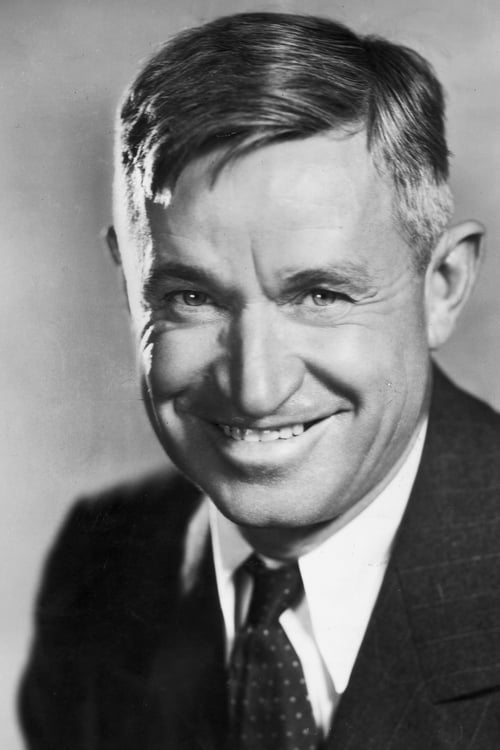
Riwayat Hidup
William "Will" Penn Adair Rogers (November 4, 1879 – August 15, 1935) was an American cowboy, comedian, humorist, social commentator, vaudeville performer and actor and one of the best-known celebrities in the 1920s and 1930s.
Known as Oklahoma's favorite son, Rogers was born to a prominent Cherokee Nation family in Indian Territory (now part of Oklahoma).
He traveled around the world three times, made 71 movies (50 silent films and 21 "talkies"), wrote more than 4,000 nationally-syndicated newspaper columns, and became a world-famous figure.
By the mid-1930s, Rogers was adored by the American people.
He was the leading political wit of the Progressive Era, and was the top-paid Hollywood movie star at the time.
Rogers died in 1935 with aviator Wiley Post, when their small airplane crashed near Barrow, Alaska.
His vaudeville rope act led to success in the Ziegfeld Follies, which in turn led to the first of his many movie contracts.
His 1920s syndicated newspaper column and his radio appearances increased his visibility and popularity.
Rogers crusaded for aviation expansion, and provided Americans with first-hand accounts of his world travels.
His earthy anecdotes and folksy style allowed him to poke fun at gangsters, prohibition, politicians, government programs, and a host of other controversial topics in a way that was readily appreciated by a national audience, with no one offended.
His short aphorisms, couched in humorous terms, were widely quoted: "I am not a member of an organized political party.
I am a Democrat.
"
Rogers even provided an epigram on his most famous epigram:
When I die, my epitaph, or whatever you call those signs on gravestones, is going to read: "I joked about every prominent man of my time, but I never met a man I dident like.
" I am so proud of that, I can hardly wait to die so it can be carved.
Description above from the Wikipedia article Will Rogers, licensed under CC-BY-SA, full list of contributors on Wikipedia.
Info Pribadi
Peran Yang Di Mainkan Will Rogers
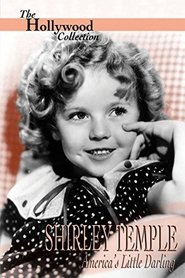 There never was a star quite...
There never was a star quite...Shirley Temple: America's Little Darling 1993
There never was a star quite like her. Adored by adults and children alike, at four she already led at the box office — ahead of Gable and Cooper. Her films saved a movie studio from bankruptcy, and a President credited her with raising the morale of Depression-weary Americans. Her earliest movies gave a foretaste of her talents and soon would become the songs and dances that helped make those movies immortal.
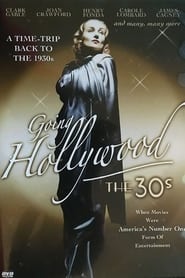 Robert Preston hosts this documentary that...
Robert Preston hosts this documentary that...Going Hollywood: The '30s 1984
Robert Preston hosts this documentary that shows what people of the 1930s were watching as they were battling the Depression as well as eventually getting ready for another World War.
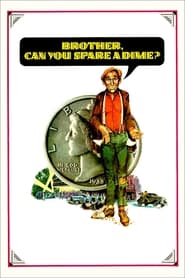 Period music film clips and newsreel...
Period music film clips and newsreel...Brother, Can You Spare a Dime? 1975
Period music, film clips and newsreel footage combined into a visual exploration of the American entertainment industry during the Great Depression.
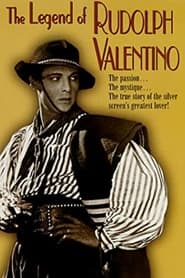 A documentary of Hollywoods first great...
A documentary of Hollywoods first great...The Legend of Rudolph Valentino 1961
A documentary of Hollywood's first great Latin Lover, the contradictions in his personal life, and his premature death.
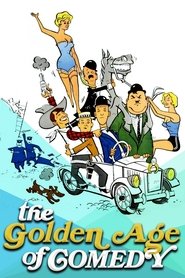 A compilation featuring comedic stars of...
A compilation featuring comedic stars of...The Golden Age of Comedy 1957
A compilation featuring comedic stars of the silent era including Will Rogers, Laurel and Hardy, and the Keystone Cops.
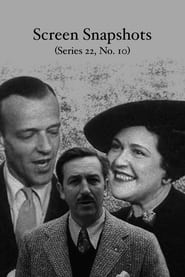 The edition of Screen Snapshots celebrates 25...
The edition of Screen Snapshots celebrates 25...Screen Snapshots (Series 22, No. 10) 1942
The edition of Screen Snapshots celebrates 25 years of production. It looks at the content of edition #1, then a tribute to movie people who have died in those 25 years. Finally there are tributes to the Screen Snapshots series by Cecil De Mille, Walt Disney, Louella Parsons and Rosalind Russell.
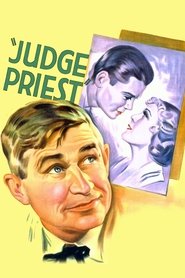 Judge Priest a proud Confederate veteran...
Judge Priest a proud Confederate veteran...Judge Priest 1934
Judge Priest, a proud Confederate veteran, restores the justice in a small town in the Post-Bellum Kentucky using his common sense and his great sense of humanity.
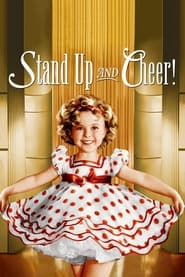 President Franklin Roosevelt appoints a theatrical...
President Franklin Roosevelt appoints a theatrical...Stand Up and Cheer! 1934
President Franklin Roosevelt appoints a theatrical producer as the new Secretary of Amusement in order to cheer up an American public still suffering through the Depression. The new secretary soon runs afoul of political lobbyists out to destroy his department.
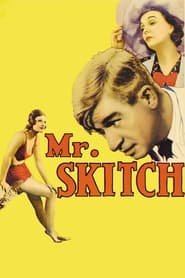 After losing their Missouri home during...
After losing their Missouri home during...Mr. Skitch 1933
After losing their Missouri home during the Great Depression, the Skitch family pulls up stakes and heads west to California to begin life anew. Comedy, released in 1933.
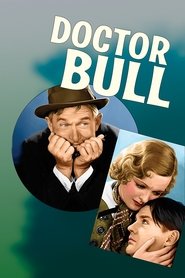 In this engaging adaptation of James...
In this engaging adaptation of James...Doctor Bull 1933
In this engaging adaptation of James Gould Cozzen's novel The Last Adam, film icon Will Rogers portrays Dr. George Bull, a compassionate, highly regarded small-town physician who often prescribes a healthy dose of common sense! But when Bull begins dating a widow (Vera Allen), the local gossips misconstrue the story. To make matters worse, Bull's plainspoken manner earns him an enemy in the wealthy owner of a nearby construction camp. But once it's learned that the camp has caused illness by polluting the local water supply, the good doctor steps in to try to restore the town's health - and his reputation!
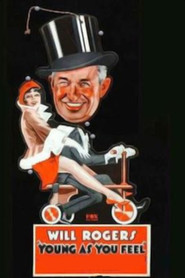 Lemuel Morehouse the owner of a...
Lemuel Morehouse the owner of a...Young as You Feel 1931
Lemuel Morehouse, the owner of a profitable meatpacking company in Chicago, bemoans the fact that neither of his two sons have the time nor inclination to eat with him. Billy is obsessed with culture, while Tom is a physical fitness nut. At the office, Lemuel is exasperated when Billy arrives for work at four in the afternoon and cannot stay because of a party he is giving that night to unveil a statue he bought for $20,000. Lemuel then finds Tom meeting with his golf committee rather than working. When the boys argue that business is only a means to an end, and that happiness and enjoyment of life are desired goals, Lemuel counters their contentions by declaring that what they really need are wives and tells them that Dorothy and Rose Gregson, the daughters of an old friend, will soon be visiting.
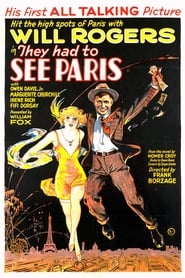 Oklahoma mechanic Pike Peters finds himself...
Oklahoma mechanic Pike Peters finds himself...They Had to See Paris 1929
Oklahoma mechanic Pike Peters finds himself part owner of an oil field. His wife Idy, hitherto content, decides the family must go to Paris to get "culture" and meet "the right kind of people." Pike and his grown son and daughter soon have flirtatious French admirers; Idy rents a chateau from an impoverished aristocrat; while Pike responds to each new development with homespun wit. In the inevitable clash, will pretentiousness and sophistication or common sense triumph?
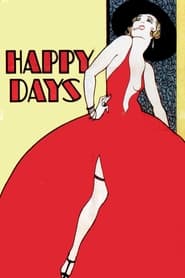 Margie singer on a showboat decides...
Margie singer on a showboat decides...Happy Days 1929
Margie, singer on a showboat, decides to try her luck in New York inspite of being in love with the owners grandson. She is successful, but suddenly she hears that the showboat is in deep financial trouble, and she calls all the boats former stars to join in a big show to rescue it.
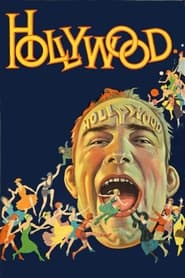 Angela comes to Hollywood with only...
Angela comes to Hollywood with only...Hollywood 1923
Angela comes to Hollywood with only two things: Her dream to become a movie star, and Grandpa. She leaves an Aunt, a brother, Grandma, and her longtime boyfriend back in Centerville. Despite seeing major movie stars around every corner, and knocking on every casting office door in town, at the end of her first day she is still unemployed. To her horror, when she arrives back at their hotel, she finds that Grandpa has been cast in a movie by William DeMille and quickly becomes a star during the ensuing weeks. Her family, worried that Angela and Grandpa are getting into trouble, come to Hollywood to drag them back home. In short order Aunt, Grandma, brother, boyfriend and even the parrot become superstars, but Angela is still unemployed...
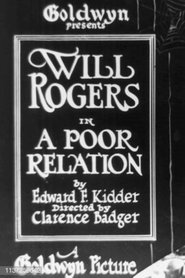 Slaving to perfect an invention Noah...
Slaving to perfect an invention Noah...A Poor Relation 1921
Slaving to perfect an invention, Noah Vale tries to keep two orphans--Rip and Patch--and himself by peddling books and is helped by Scallops, a girl who occasionally brings them food. He appeals to Fay, a wealthy relative, for help in marketing his invention and arouses the interest of Fay's pretty daughter. Sterrett, Fay's partner, steals the model but returns it when he discovers it to be worthless. Johnny Smith, Fay's secretary, is fired when he proposes to the boss's daughter; and visiting Vale's attic, he is comforted by his epigrams. Johnny takes them to a newspaper editor, and they are so successful that both Smith and Vale are hired. Vale decides to give up inventing for writing, and Johnny marries Miss Fay despite her father's opposition.
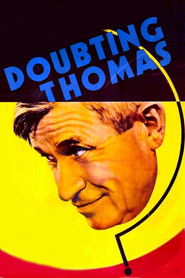 A husband makes fun of his...
A husband makes fun of his...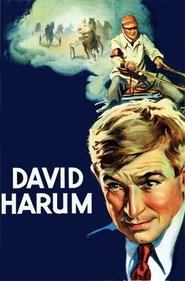 Rogers plays a small town banker...
Rogers plays a small town banker...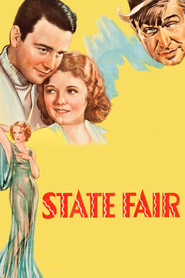 The children of Iowa farmers find...
The children of Iowa farmers find...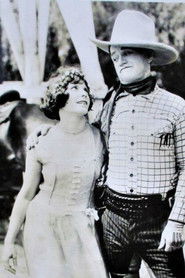 A morals reformer returns from Hollywood...
A morals reformer returns from Hollywood...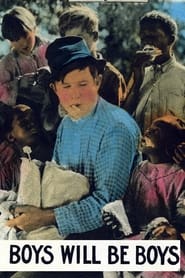 Peep ODay an orphan in a...
Peep ODay an orphan in a...